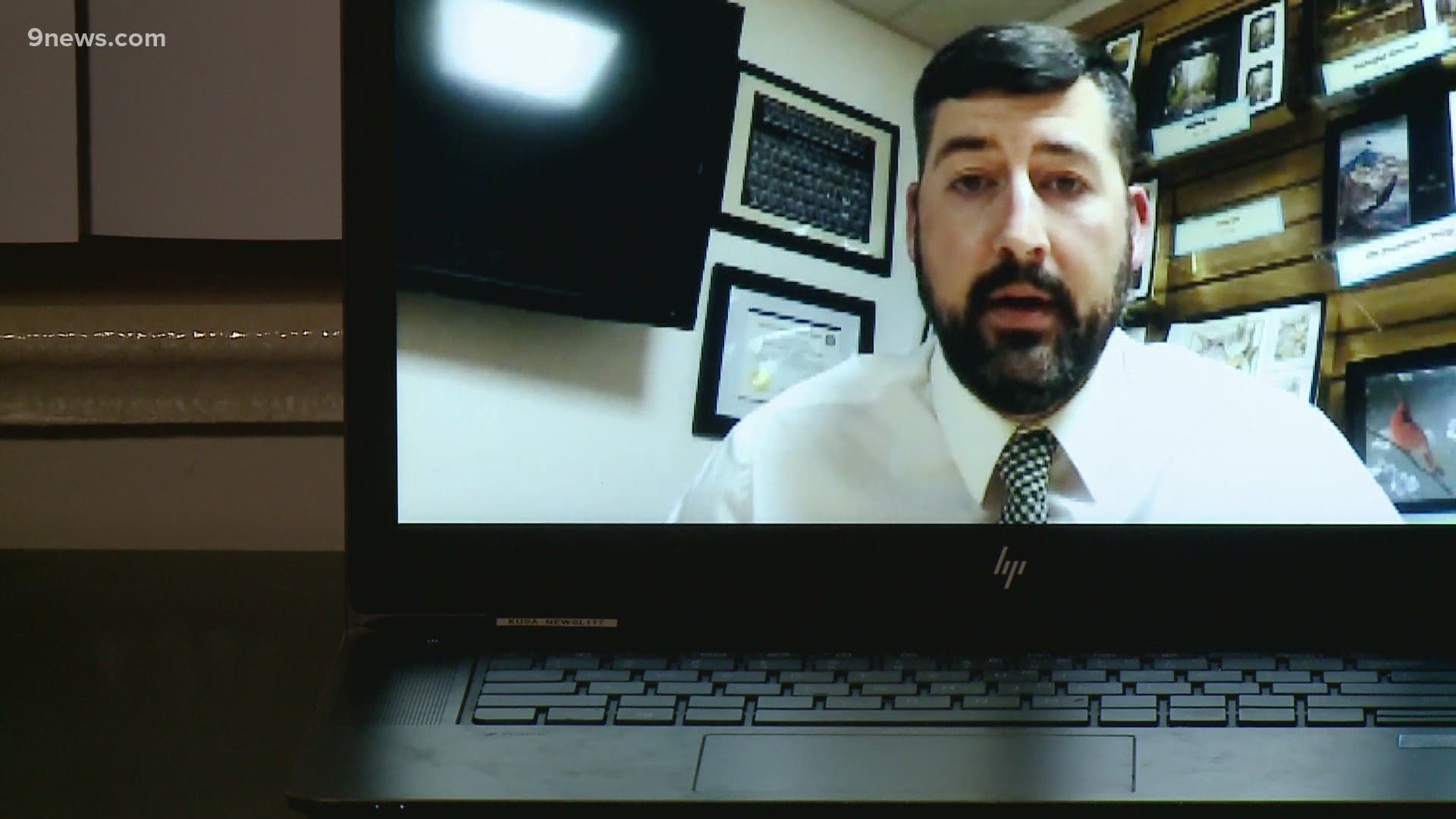COLORADO, USA — As COVID-19 deaths climb, so does the workload for funeral home employees who step in once a life is lost.
They are often called the unseen frontline workers.
“Every funeral home has seen an increase of volume from this,” said Javan Jones, the owner of Schmidt-Jones Funeral Home in Wray.
He said his crematory business is about 30% busier than last year due to his own county's needs as well as the needs of neighboring counties.
Jones works in a smaller, more rural community. But his colleagues across the state are seeing the same trends. In some places, they’re even busier.
“The funeral directors I talk to on front range, the bigger firms, they’re definitely seeing an increase, too," he said. "And the workload is pretty tough.”
Jones is also the president of the Colorado Funeral Directors Association. Much like the frontline workers in hospitals, funeral homes are dealing with staff shortages, too.
“Especially when you have your staff getting sick from COVID," he said. "You have 10 funerals that week, what are you going to do?”
The answer, he said, is to rely on each other.
Jones said the industry is tight-knit, and funeral homes are stepping in to help each other if one business is dealing with an outbreak.
Additionally, storage space for bodies can sometimes be limited. Jones said the state has refrigeration trucks to help when and where needed.
Another challenge is managing their own personal risk. The job takes funeral directors into people’s homes, hospitals and care facilities. Often times, they’re handling a COVID-19 related death.
“It’s so stressful for people," Jones said. "We go home at night. We have kids and wives and family members we have to worry about infecting.”
RELATED: Does Colorado have enough face masks, gowns and other PPE to handle another coronavirus spike?
Like other frontline workers, they use PPE on the job.
“We’re struggling with finding sources for PPE, said Stacey Kleinman, a Funeral Director who works in the care center for Horan & McConaty Funeral Service in Aurora.
She said getting PPE was very difficult in the spring, became easier in the summer, and is now getting more challenging again.
“Not only is it hard to find, they’re increasing the prices for all the things we need,” she said.
But, Kleinman said that the most difficult part of working through the pandemic is the restrictions around comforting grieving families.
“It’s really hard to not even be able to give them a handshake,” Kleinman said. “I usually end up hugging families in normal times, so not being able to even touch them is really, really hard, emotionally.”
Throughout the year of ever-changing restrictions, families have faced different options for memorial services.
Some were forced to restrict gathering sizes to smaller groups. Others simply chose to postpone a formal service until a later date. Out-of-state loved ones aren’t traveling, and instead, turning into virtual services online.
Both funeral directors said it's hard to help these families through grief and restrictions.
“I know myself and colleagues and coworkers are struggling emotionally every day,” Kleinman said. “Almost a kind of trauma involved with that.”
“I’m a fixer and I like to fix things. I can’t fix that,” Jones said. “I can’t help people get here to grieve. They’re doing it off a computer and it just doesn't do it.”
Sometimes funerals are called the “forgotten’ frontline workers. It's an industry familiar with grief, and now seeing ever more of it.
“We’re trying our best,” Jones said. “To do what we can do, to be there for them.”
SUGGESTED VIDEOS: COVID-19 Coronavirus

